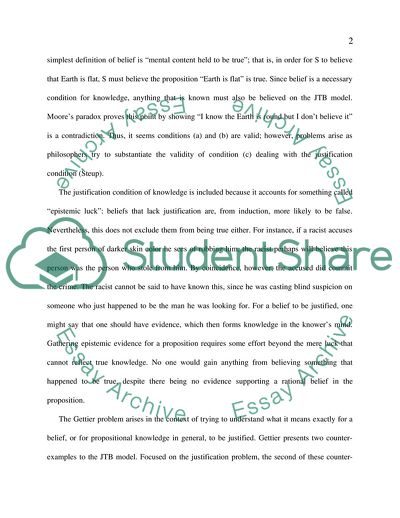Cite this document
(Gettier's Problem of Knowledge Article Example | Topics and Well Written Essays - 1750 words, n.d.)
Gettier's Problem of Knowledge Article Example | Topics and Well Written Essays - 1750 words. https://studentshare.org/philosophy/1728411-gettiers-problem-of-knowledge
Gettier's Problem of Knowledge Article Example | Topics and Well Written Essays - 1750 words. https://studentshare.org/philosophy/1728411-gettiers-problem-of-knowledge
(Gettier'S Problem of Knowledge Article Example | Topics and Well Written Essays - 1750 Words)
Gettier'S Problem of Knowledge Article Example | Topics and Well Written Essays - 1750 Words. https://studentshare.org/philosophy/1728411-gettiers-problem-of-knowledge.
Gettier'S Problem of Knowledge Article Example | Topics and Well Written Essays - 1750 Words. https://studentshare.org/philosophy/1728411-gettiers-problem-of-knowledge.
“Gettier'S Problem of Knowledge Article Example | Topics and Well Written Essays - 1750 Words”. https://studentshare.org/philosophy/1728411-gettiers-problem-of-knowledge.


